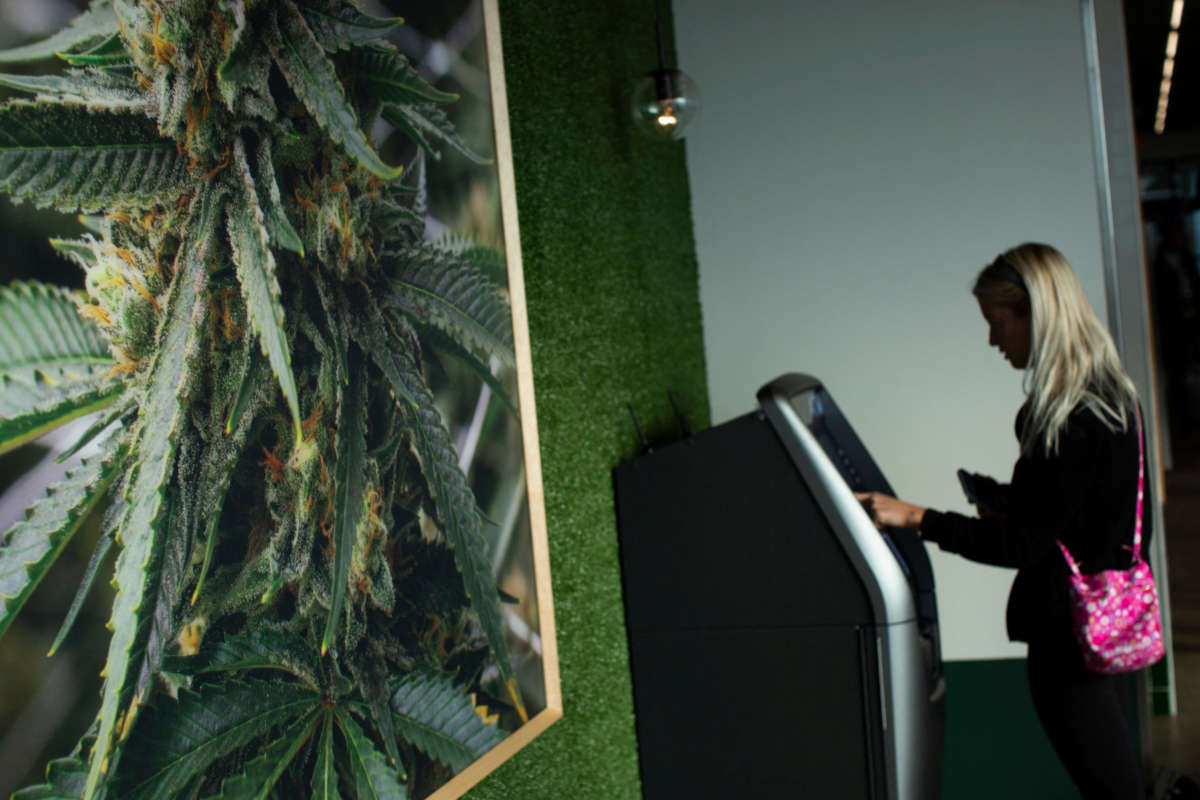Did you know that Truthout is a nonprofit and independently funded by readers like you? If you value what we do, please support our work with a donation.
New polling finds strong support among voters for President Joe Biden’s federal moves on marijuana last week, including his decision to pardon those with certain marijuana convictions and his statement that he will consider decriminalizing the drug on the federal level.
A poll conducted by Morning Consult/Politico after Biden’s announcement on Thursday found that nearly 7 in 10 voters — 69 percent — support Biden’s move to ask his administration to consider federal decriminalization of marijuana, with only 18 percent saying they oppose the move and 43 percent saying they “strongly” approve.
The poll also found that voters support Biden’s decision to pardon about 6,500 people of their federal convictions for simple marijuana possession. Sixty-five percent of respondents said that they agreed with the action, which advocates say could help people who have faced such convictions with things like getting a job or renting or buying a house. This polling lines up with other recent polling from Ipsos that also found majority support for the decriminalization moves and pardons.
The strong support for Biden to consider decriminalizing the drug is an indication that following through on the action would be a politically savvy move at a crucial time for the president. With the midterm elections coming soon, decriminalization could provide Democrats with a much-needed boost.
Marijuana is currently classified as a Schedule I drug, which means that violations of federal laws over possessing or selling the drug can come with some of the harshest drug-related punishments. Federal descheduling, or decriminalizing, of the drug, is a step short of legalization — but it could make it so that its use and possession comes with minimal to no penalties if caught, putting it in a similar legal class to alcohol.
Advocates have long called for descheduling the drug, saying that marijuana doesn’t clinically align with many other Schedule I drugs like heroin and that descheduling it would be a step toward ending the country’s racist failed war on drugs, which Biden had a major hand in manufacturing.
Though advocates praised Biden for his moves on Thursday, they say he could do much more in this realm, including expunging the charges he pardoned from people’s records and widening the scope of the pardons or expungements.
Advocates and progressive lawmakers have also called for Biden to throw his weight behind legalizing the drug.
Polls have consistently found that marijuana legalization is popular — and that legalization could drive people out to vote. Another Morning Consult/Politico poll published last week found that 60 percent of all voters support nationwide marijuana legalization, including 71 percent of Democrats and 61 percent of independents. Republicans were split on the issue, with 47 percent supporting it and 41 percent against it.
The House has continually passed bills to legalize marijuana nationwide, but the issue is a nonstarter in the Senate, where some conservative Democrats and Republicans oppose the idea.
Press freedom is under attack
As Trump cracks down on political speech, independent media is increasingly necessary.
Truthout produces reporting you won’t see in the mainstream: journalism from the frontlines of global conflict, interviews with grassroots movement leaders, high-quality legal analysis and more.
Our work is possible thanks to reader support. Help Truthout catalyze change and social justice — make a tax-deductible monthly or one-time donation today.
